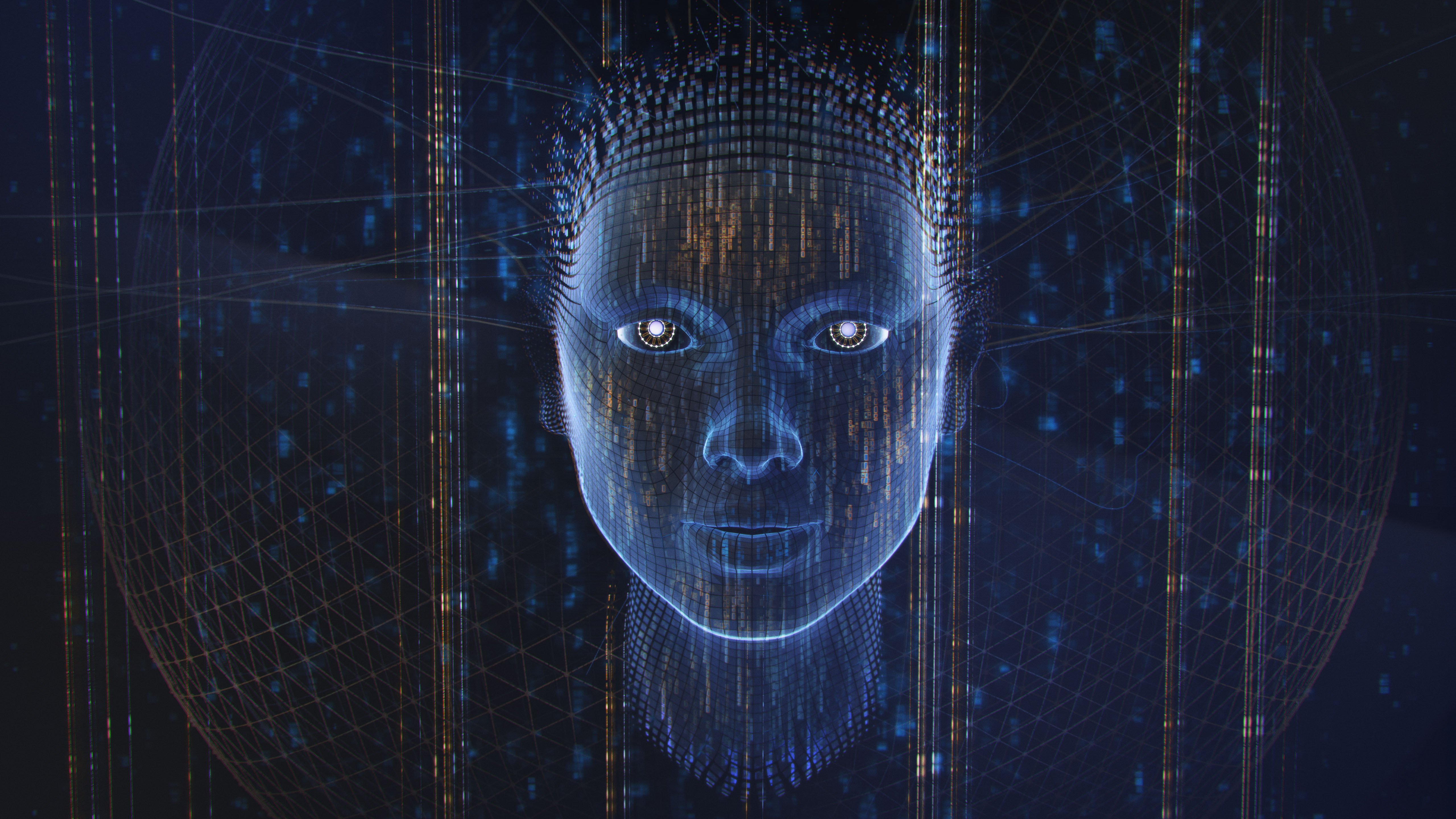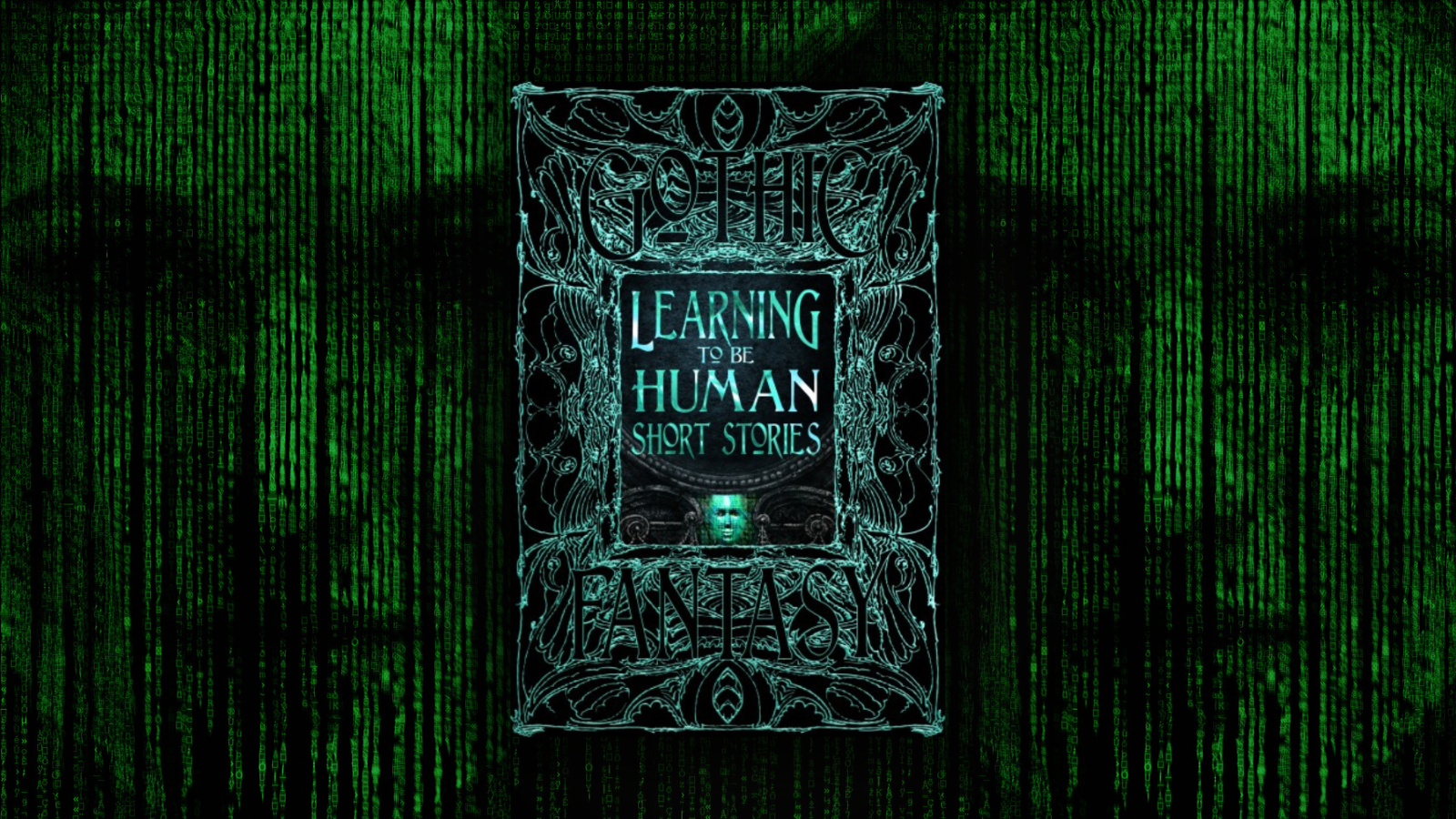Our latest anthology Learning to Be Human features modern and classic fiction delving into the hot topic of machine learning, AI and what it means to be human. In last week’s blog, authors discussed the inspiration behind their tales in the book, and here they return with recommendations of other stories and insights into how their writing takes shape! Be prepared to come away with a list of more books, films and games to explore further…

What are your favourite stories from this genre?
Yelena Crane
SO MANY! I loved what Westworld (S1) did with this concept. It wasn’t so much what they presented was new but how they recycled the same old ethical discussions and made them compelling. Cain famously said: “Am I my brother’s keeper?” – it should be imperative we ask if we are our robot’s keepers and answer yes to this ancient question.
M.C. St. John
Charles Beaumont’s stories are a recent discovery of mine (‘Last Rites’ being an inspiration for my story ‘Thy Will Be Done’ in Learning to Be Human). My absolute favorite science fiction stories are Ray Bradbury’s, both for their poetry and metaphor. ‘There Will Come Soft Rains’, ‘The City’, and ‘Marionettes, Inc’. immediately come to mind as stand-outs, though that opinion is apt to change on a daily basis (there are so many amazing stories to choose from!).
Derek Des Anges
Several of my favourites have appeared in this anthology (which is very exciting for me!): I do think the ultimate ‘becoming human’ story is probably Mary Shelley’s Frankenstein, although it has earlier echoes in The Epic of Gilgamesh; I am also very fond of Data’s whole character arc on successive Star Trek series.
Akis Linardos
When it comes to AI-focused science fiction, I’m a big fan of: Soma (an all-time favorite horror game), NieR Automata (god this game, I’m obsessed with the OST), and I Am AI by Ai Jiang. And I know I definitely need to read Murderbot and watch Ghost in the Shell eventually!
Sydney Paige Guerrero
There are so many great ones in the Science Fiction: Filipino Fiction for Young Adults and Diaspora Ad Astra anthologies published by the University of the Philippines Press. I also really enjoyed EK Gonzales’ ‘Clockwork Bayani’ and Nadine Aurora Tabing’s ‘Obsolesce’ from Strange Horizon’s 2022 SEA Special Issue, which is just a fantastic read overall. Gabriela Lee, Eliza Victoria, Dean Francis Alfar, Nikki Alfar, Victor Fernando R. Ocampo, Isabel Yap, Charles Tan, Paolo Chikiamco, Lakan Umali, and Kate Osias are all also excellent writers whose SF works I am a huge fan of. This is a non-exhaustive list. I am certain that I will remember a bunch of names and titles and collections that I will kick myself for not mentioning here, just because questions like these almost always seem to convince my brain that I’ve never seen a book in my life.
Emily Inkpen
There are so many examples of great stories where people and technologies learn what simply existing means to them. Westworld, 2001: A Space Odyssey, Blade Runner, Frankenstein… Horizon: Zero Dawn is an excellent example of a far-future reality where technology has taken on a life of its own that humans are outside of and essentially victims to. In the games, Aloy must uncover the mysteries of the past to build a new future for humanity.
Antonia Rachel Ward
Ex Machina comes to mind as a film that conveys the weirdness of artificial intelligence quite effectively. I also recently read Klara and the Sun by Kazuo Ishiguro, which is an unusual take on the subject.
Jason Sabbagh
There are so many. For novels I think it would be a tie between The Moon Is a Harsh Mistress and Snow Crash. Short stories – there’s just too many amazing ones, I read at least one short story a day, so I’ll go classic – ‘There Will Come Soft Rains’, ‘The Last Question’. Movies, same problem… – Blade Runner, 2001: A Space Odyssey, The Matrix, and the best action movie ever made – T2.
Hal Bodner
A 2019 film called Life Like, that almost no one saw, deals with similar issues about what makes us human AND has several shirtless scenes with Drew van Acker and Steven Strait.
Corbett McKinney
This is tough – there are quite a few! I’ll highlight two here. First, Isaac Asimov’s short story ‘The Evitable Conflict’, which appeared in his collections including I, Robot (which could also be included as a whole). Second, Becky Chambers’ A Closed and Common Orbit, which has become one of my favorite AI stories of all time. Both bring a lovely nuance to the relationship between people and sentience and technology, though in very different ways.
Shannon Fay
I love a diabolical AI that has a weirdly human malicious streak. Maybe that’s why I’m so partial to GLaDOS from Portal. In the video game Portal, you play as a human lab rat solving logic puzzles, and GLaDOS is there not only to prod you onward but to deliver monotone, backhanded compliments when you do. The more tests you do, the more GLaDOS seems to hate you. Often in fiction we can’t help but assume that the more intelligent an AI is, the more likely it is to hate its human creators, a Frankenstein’s monster made of chrome and wire holding humanity responsible for its existence.
Matthew Chrulew
Stanislaw Lem is indispensable. Obsessed with questions of technology, intelligence, evolution, and the limits of the human, he wrote satirical science fictional novels, philosophical and futurological treatises, and everything in between, from comic robot fables to reviews of and introductions to non-existing books (such as a history of literature by machines and the lectures of a superintelligent computer). The world is still catching up.
K.G. McAbee
Asimov’s robot stories, of course! Especially The Caves of Steel and The Naked Sun. The android Daneel Olivaw is ‘passing’ for human, to the point that he can eat food. Also, since these are both mystery stories, a very human trait ends up solving the mysteries: our use of language. Lige Bailey asks Olivaw to ‘give me a hand?’ and the android is confused. Language makes us human in so many ways, good and bad.
Kushal Chatterjee
I’m actually not a huge science fiction reader; I tend to lean more towards fantasy and classic literature. Some of my favorite science fiction works include Dune, 2001: A Space Odyssey, and The Invisible Man. I also consider my story in Learning to Be Human to be a psychological drama, and found quite a bit of inspiration in similarly themed works by my favorite writer, Cormac McCarthy – specifically his novels Suttree and The Passenger.
Can you tell us a little about your writing process?
P.A. Cornell
I usually try to get the first draft of a short story down in a single sitting. I find that for me it’s easier to hold on to the voice and tone when I do that, and thankfully I type fast. I rarely outline, but I usually have some idea where I’m going with the story. Some stories surprise me, but with my story in Learning to Be Human I knew the shape it would take and that I’d write it as a series of inter-office emails because it adds to the detachment of the tech company behind this AI.
Ramez Yoakeim
I’m a creature of habit, so maintaining a work routine from location to time of day to what device or software I’m using means I can free myself from all the mechanics and focus on the creative part of writing. Sometimes though, life happens, and when it does, I take these deviations from the routine as opportunities to improve it!
Paige E. Ewing
You hear a lot about steady writing goals like 500 words/day, but my life is too chaotic to stick to that. My brain has a constant, building pressure of ideas and stories. When I finally have time to write, all that comes pouring out. Plus, I write stories I enjoy reading, so when I want something low stress and enjoyable to do, I read my own work to edit, polish, and make it better.
Vivian Chou
I write at my dining room table during the evenings and on weekends and try to crank out a story in two to three days. I start with vibes and a feeling or mood that’s been on my mind and spin it with a fantasy or sci fi or satirical element. Then, the story goes to the crit groups for helpful suggestions. Unfortunately, I’m a pantser, so I’m often surprised by what falls out of my brain.
E.J. Delaney
I start with a mental image. Where these come from, who can say? For ‘The Girl with the Matchstick Heart’ in Learning to Be Human, it was Vasilisa’s ribs, appearing to me as I stared, unfocussed, at a set of anodised relay batons. Within such daubs of fancy, I slowly discern characters, events, purpose – a kind of plot pareidolia. Then I write. The specific process, converting notional story to prose, is a torture I try not to think about.
Rachel Aukes
I treat my writing as a job. I wake up at 5 a.m. Monday-Friday to polish what I’ve written the day before, handle any editing projects, catch up on email/socials, and walk my dog. By late morning, I switch gears to start writing. My goal is to get at least 3k good words in my manuscript by 5 p.m. On weekends, I try to squeeze in 1k words to keep the story fresh in my mind.
Nemma Wollenfang
I’m a Night Owl. If I can get away with writing the night away, I will. It’s when everything is at its most peaceful.*Stage whispers* Because everyone else is asleep. There’s something to be said for cutting out all the noise you get throughout the day. I’m also somewhat of a jigsaw writer – a puzzle piece here, a puzzle piece there. Whatever scene strikes my fancy until I create enough to start piecing the full picture together.
Mary Liu
I tend to write in big chunks, but I’m trying to develop a more consistent writing habit. What’s been helping is doing what I call ‘stream of consciousness writing’ where I turn off my inner editor and just write whatever comes to me. Despite knowing logically that the first draft won’t be a polished, final version, I’d never internalized it until I tried writing like this. It’s been helping me combat my perfectionism!
K. Lynn Harrison
My writing process is a little more opportunistic than organized. I write when I can and where I can, and I’ve developed a system that helps me take advantage of every possible moment. I connect a folding keyboard to my cell phone in a configuration I like to refer to as the world’s tiniest computer. It’s easy to whip out whenever I can, and it keeps me from having loads of handwritten notebooks to type up later.

The book is available to buy now – get your copy here!
Links
- Did you miss the first part of this Q&A? Catch up with Part 1, where authors discuss the inspirations behind their stories.
- See the full list of authors in this book here.
- Browse the full collection of Flame Tree anthologies.



